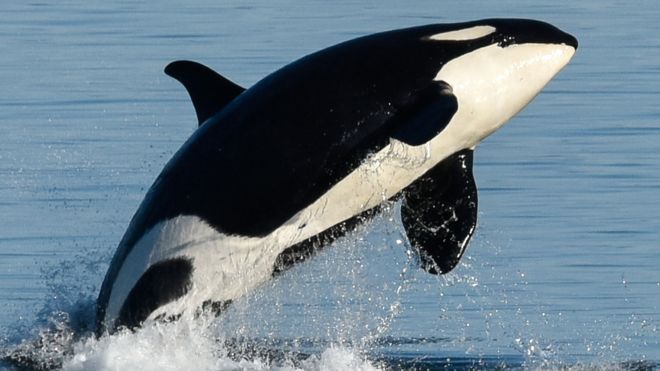Menopause is an exclusive trait, shared only among humans, killer whales, and short finned pilot whales. According to a new Current Biology study, killer whales go through menopause to avoid reproduction competition with their daughters, allowing them to instead share knowledge to help their family succeed. This explanation also sheds light on why humans share this unique trait with toothed whales.
The research builds on research showing that post reproductive killer whales have a ‘grandmother’ role within the pod and that they share knowledge of when and where to find food which increases the survival of their family group.
Resources to reproduce are limited within the group and there’s only a certain amount of food to go round. So there’s this tug-of-war over getting access to these resources and it’s the younger females that are pulling harder and competing more to get those resources to reproduce.
In early life these females are reproducing. They’re reproducing their own offspring and there reaches a tipping point where they go from competing to reproduce to helping in later life. That involves helping to look after their sons, daughters and granddaughters.
– PROFESSOR DARREN CROFT, UNIVERSITY OF EXETER
Professor Croft joined scientists from Cambridge and York University, as well as from the Center for Whale Research in the USA and Fisheries and Oceans Canada. Together, they studied two populations of killer whales which live off the North West Pacific Coast of Canada and the US.
Both sons and daughters stay with their mothers and don’t disperse, but they mate with individuals from a different family group. Males typically have a shorter lifespan than females – many not surviving beyond 30 years. Female killer whales, usually stop reproducing in their 30s-40s but just like humans they can live for many decades following menopause.
Males only live until they are about 30. They become dependent on their mothers for their survival. So these old 30-year-old males are being fed by their mothers and if she dies, then they have a much higher chance of dying as well. So the male offspring really are dependant on their mums for survival.
– PROFESSOR DARREN CROFT, UNIVERSITY OF EXETER
The bottom line, Croft says, is that menopause is no accident. Rather, it’s an evolved trait driven by both cooperation and conflict in family groups. The findings help to explain factors that are driving the whales’ survival and reproductive success, which is essential information given that the Southern Resident killer whales – one of the whale populations under study – is listed as endangered and at risk of extinction.
Professor Croft and the research team are planning to use drones in the next phase of research to study the killer whales behaviour more closely, including a more in-depth analysis of the conflicts between mothers and their daughters.















